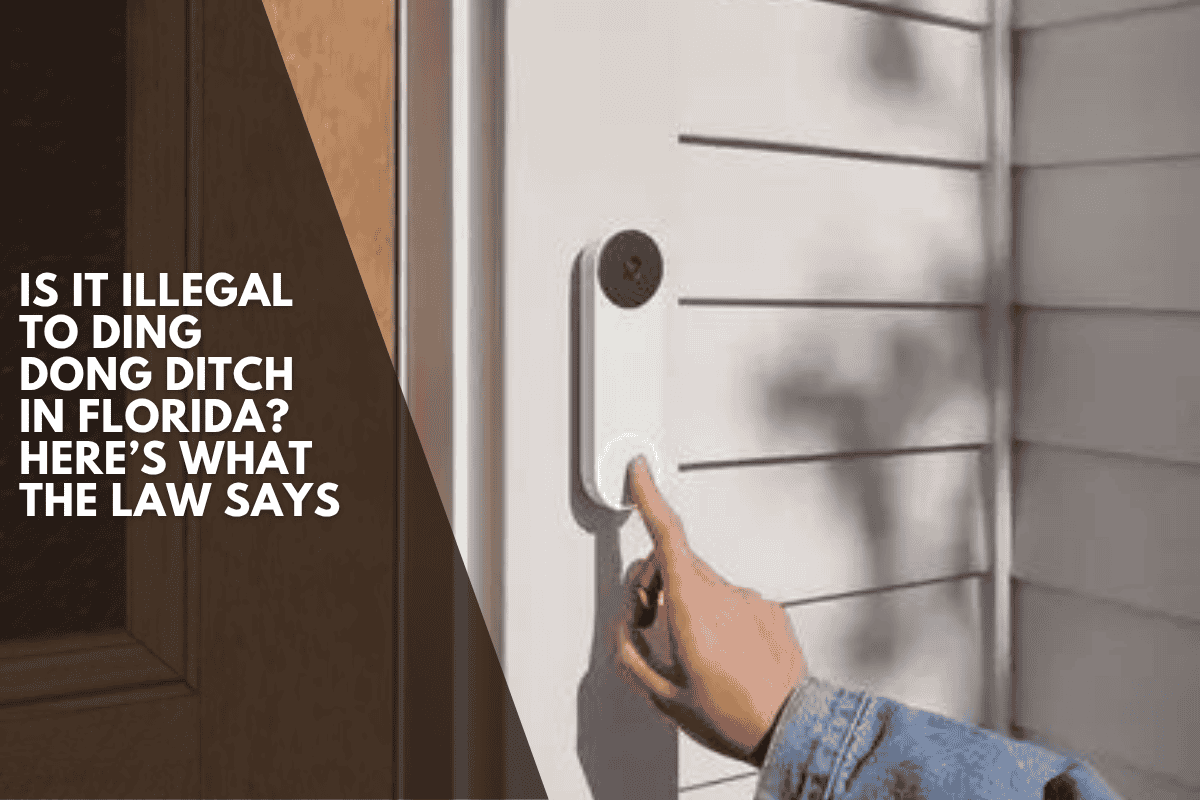Ding dong ditch—the act of ringing someone’s doorbell and running away before the homeowner answers—may seem like a harmless childhood prank. However, under Florida law, this behavior can carry legal consequences and, in some cases, result in criminal charges.
Legal Framework: Trespassing and Disorderly Conduct
In Florida, ding dong ditching can be prosecuted under two main statutes: trespassing and disorderly conduct.
Trespassing:
Florida Statutes § 810.09 addresses trespassing on property other than a structure or conveyance. If someone enters another person’s property without authorization, license, or invitation—even briefly to ring a doorbell—they may be considered trespassing.
This is a first-degree misdemeanor, punishable by up to one year in jail, a $1,000 fine, and one year of probation. Typically, a first offense may result in a warning, but repeat offenses can lead to formal charges and penalties.
Disorderly Conduct:
Florida Statutes § 877.03 covers disorderly conduct, also known as breaching or disturbing the peace. If ding dong ditching causes a disturbance, frightens residents, or disrupts the peace of the neighborhood, it can be prosecuted as disorderly conduct—a second-degree misdemeanor. This could result in fines, community service, or even jail time in more severe cases.
When Ding Dong Ditch Becomes a Crime
While a single instance of ding dong ditching may be treated as a minor nuisance, repeated incidents or pranks that cause significant distress can escalate into criminal matters. If the act is part of a pattern of harassment, targets a specific individual, or leads to property damage, charges could include harassment or even vandalism.
Moreover, if the property is clearly marked with “No Trespassing” signs or the homeowner has previously asked the prankster to stay away, the likelihood of prosecution increases.
Real-World Consequences
Law enforcement in Florida has taken ding dong ditching seriously in some cases, particularly when it leads to fear or safety concerns. There have been incidents where frightened homeowners or bystanders have responded with force, resulting in injuries or even fatalities. Additionally, a criminal record—even for a misdemeanor—can have long-term consequences for employment, education, and more.
Special Considerations for Minors
Most ding dong ditchers are minors, and juvenile justice procedures often apply. While first-time offenders may receive warnings or be required to perform community service, repeat or severe offenses can result in juvenile charges. In some cases, parents may also be held responsible for damages or emotional harm caused by their children.
Ding dong ditching is not explicitly named in Florida law, but it can be prosecuted as trespassing or disorderly conduct, both of which are misdemeanors.
The severity of the consequences depends on the circumstances, including whether the act is repeated, causes distress, or involves property damage. What may seem like a harmless prank can quickly become a legal issue, so it’s important to understand the risks and respect others’ property and peace.
Sources
[1] https://www.pumphreylawfirm.com/blog/is-ding-dong-ditching-as-harmless-as-pranksters-think/
[2] https://www.lawlegalhub.com/is-it-illegal-to-ding-dong-ditch/
[3] https://www.fox4now.com/news/local-news/teen-caught-on-camera-playing-ding-dong-ditch
[4] https://www.legalreach.com/blog/is-ding-dong-ditching-illegal-it%E2%80%99s-more-serious-than-you-might-think
[5] https://www.aol.com/ding-dong-ditch-doorbell-game-163258854.html











